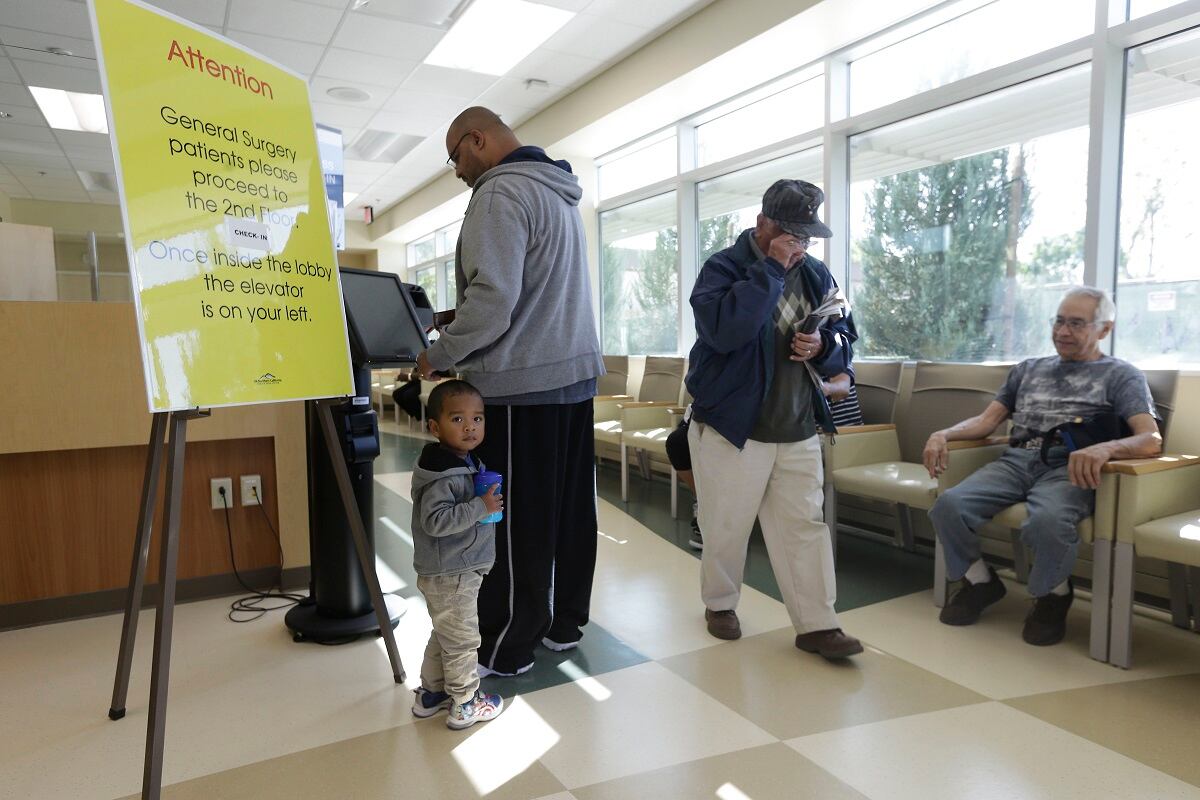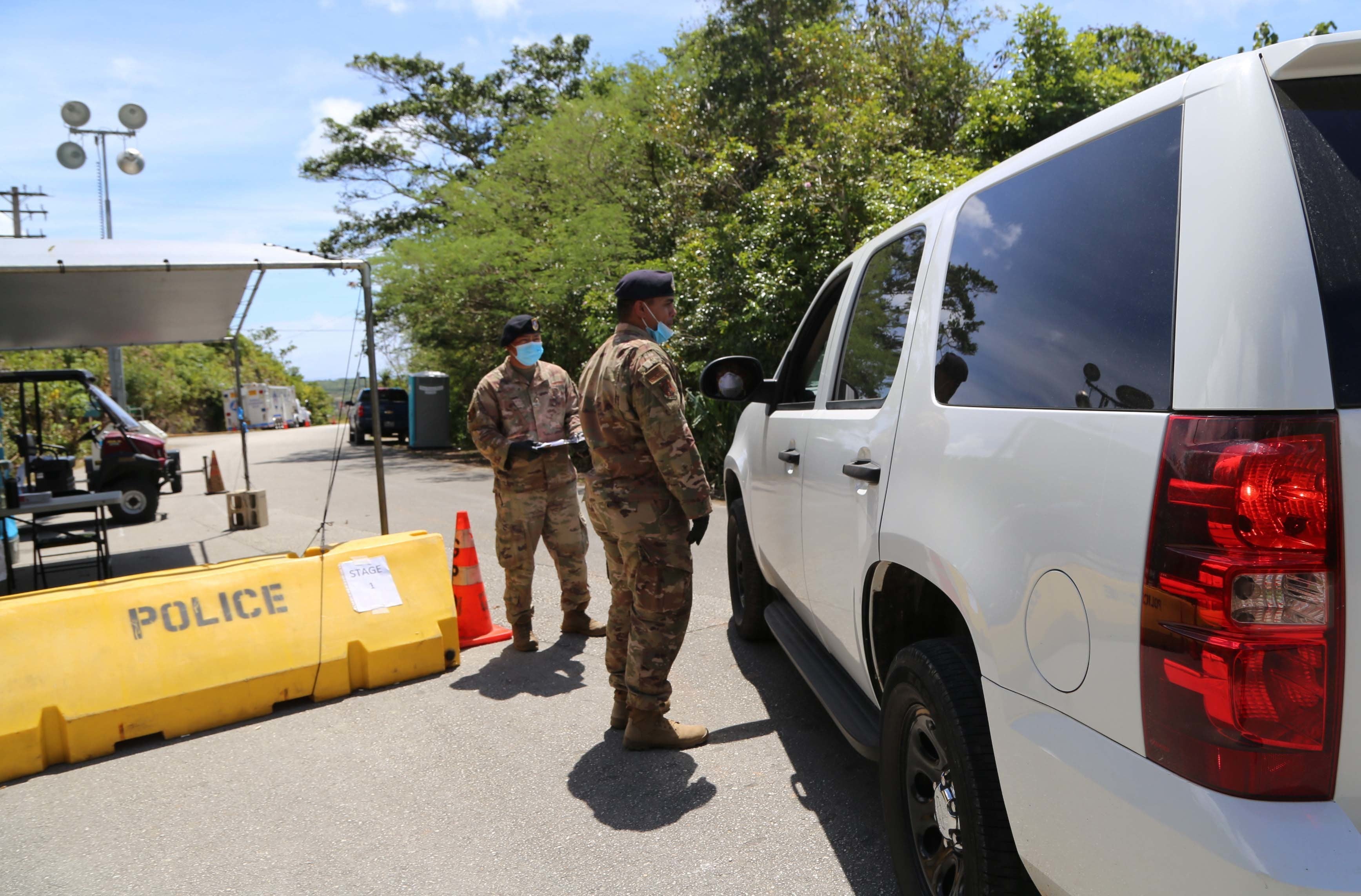Even as Veterans Affairs staffers prepare to deploy outside their hospitals to help with the national response to the fast-spreading coronavirus, Secretary Robert Wilkie is promising that the department’s first focus will always be caring for veterans.
“We don’t release any beds if veterans are needing them,” Wilkie said in an interview with Military Times on Thursday. “The veterans still are primary. We are a (health) bridge for the larger community, but that’s only after veterans are taking care of.”
Wilkie’s comments come as White House officials are in discussion with senior VA leaders about the department’s fourth mission — to provide medical assistance and personnel to civilian health systems in the event of national emergencies.
That has been invoked in the past for natural disasters in localized areas, but not on the scale of the coronavirus pandemic, which has spread across the United States in the last two weeks from fewer than 1,000 cases to now more than 54,000.
RELATED

VA’s own number of coronavirus cases has jumped too, up nearly one-third from Wednesday to today. The department has 484 patients who have tested positive, but outside advocates have said they believe the number is much higher.
Wilkie said he expects that number to continue to climb too.
But despite reports of shortages in personal protective equipment at various VA medical sites, Wilkie said he has confidence the sprawling federal health care system has the resources to respond to the problem.
“We started preparing for this in February,” he said. “And what we’re able to do is move resources across the country (as needed).
“There are entire swaths of the country that have not yet been impacted by this, and certainly some veterans hospitals that have not been impacted. So I’m not going to keep 500 respirators in the middle of a state that has one veteran with the infection, when I can use that in Seattle or New Orleans or New York city.”
Wilkie said that flexibility will allow VA to get resources assigned to hard-hit areas, then move them out once the worst is over. Cancelling elective procedures across the health care system has also freed up thousands of hospital beds.
At least 75 VA staffers have tested positive for coronavirus, but the secretary insists that “we’re not putting any of our employees at unnecessary risk” during the pandemic response.
“They understand the medical mission better than anyone,” he said. “I sit down and go through every day with our medical people, every region in the country, and we’re constantly reviewing the status of our staffing. I hear from the network directors on a daily basis and we’re asking them to tell us if they think something needs to be addressed.”
The secretary pushed back on news reports that the existing community care appointments are being curtailed, but acknowledged that many new requests for meetings with outside physicians could be delayed or denied because of health and safety concerns in local communities.
He said those won’t involve cases of imminent need, and VA will continue to keep veterans safe.
One thing that will help with looming shortfalls — “there will be some gaps,” Wilkie acknowledged — is $19.6 billion in emergency funding expected to be approved by Congress later this week. The majority of that is direct care funding for VA medical centers and staffing, and about $3 billion is set aside for new telehealth services.
Wilkie said that money will be key, because VA is already discouraging veterans from traveling to department facilities unless absolutely necessary. The influx of new telehealth funding should dramatically broaden VA offerings in coming weeks, to include more online mental health consultations and easier access to doctor’s appointments through home computers.
Calls to the department’s suicide hotline have increased about 12 percent in recent weeks, but Wilkie said most of that jump is not related more thoughts of self-harm and depression.
RELATED

“We've had to act as an extra resource in the event that veterans feel they're not getting general information about what is going on around them from local authorities,” he said. “So we have answered a lot of questions about basic veterans care and grocery stores and things like that. And we try to answer those as best we can.”
But Wilkie said he is worried that mandated isolation and widespread panic over the coronavirus could cause complications for veterans already dealing with mental health issues. A year-long report on new suicide prevention work was set to be released by the end of this month, but the ongoing pandemic response has delayed that announcement.
For now, the secretary is asking veterans to stay calm, listen to local authorities on quarantine restrictions and reach out to the department if they have questions.
“We've sent out over 40 million individual communications — texts, emails, phone calls, letters — to veterans and also to families and caregivers across the country,” he said. “We’re keep them up to speed on the status of this crisis. We want them to protect themselves right now.
“If they feel bad, call us. We will act on that.”
Leo covers Congress, Veterans Affairs and the White House for Military Times. He has covered Washington, D.C. since 2004, focusing on military personnel and veterans policies. His work has earned numerous honors, including a 2009 Polk award, a 2010 National Headliner Award, the IAVA Leadership in Journalism award and the VFW News Media award.









